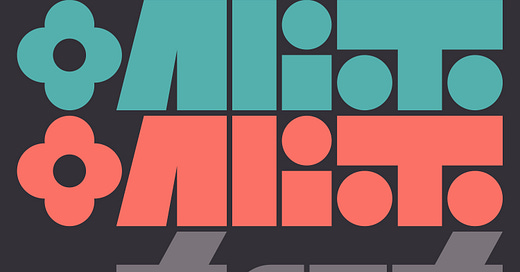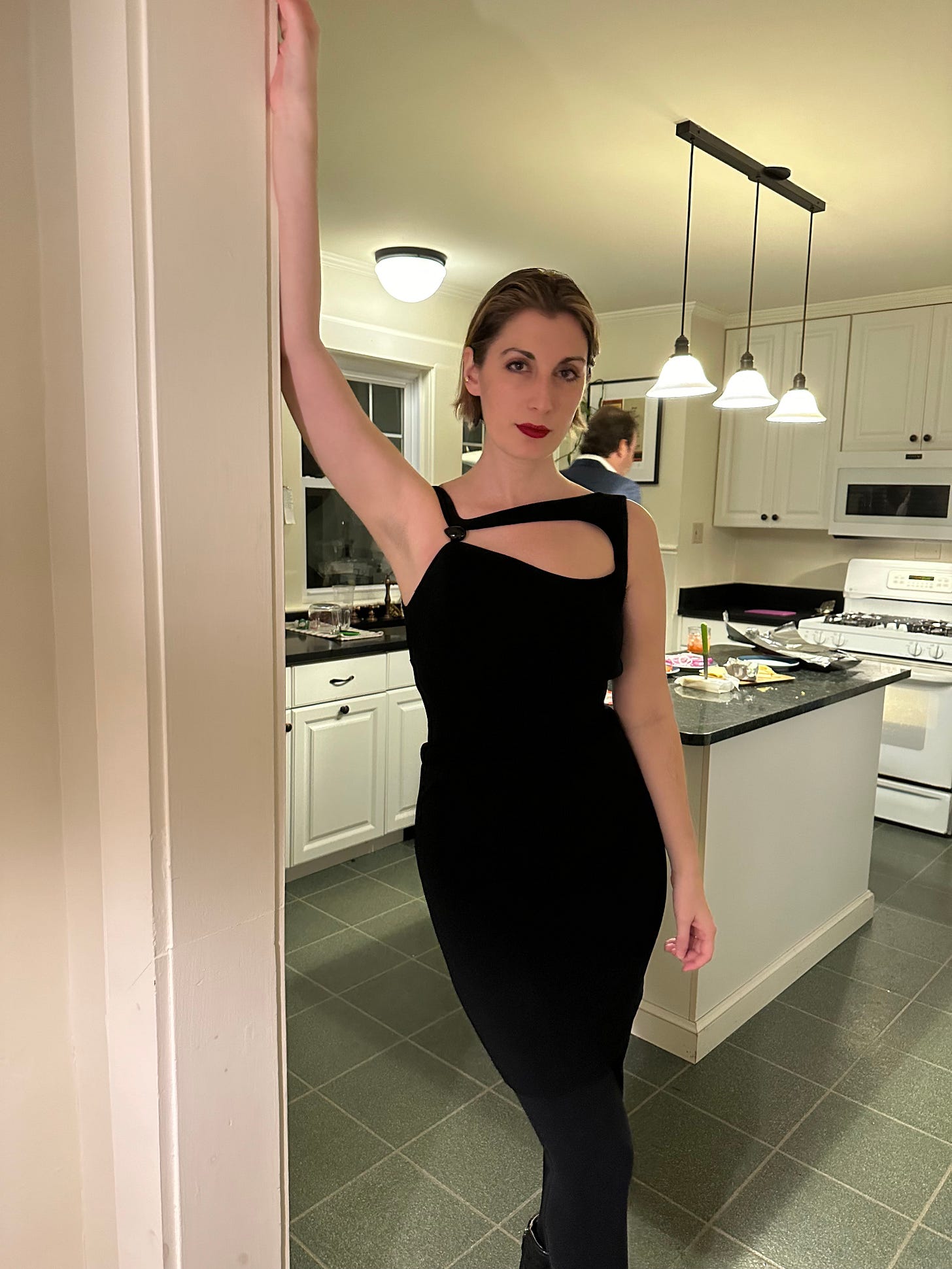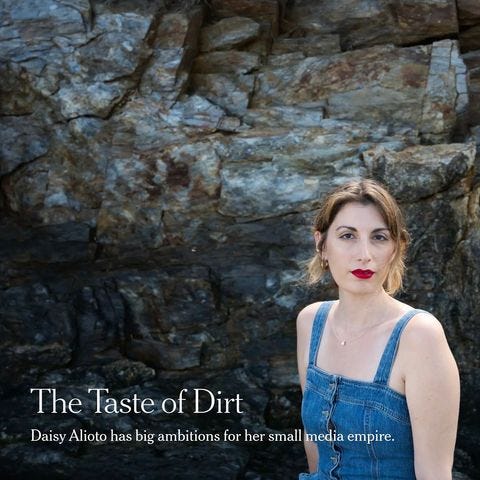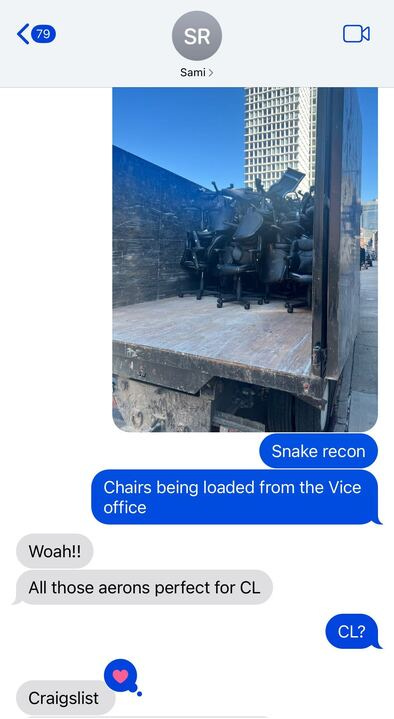Herb Sundays 123: Daisy Alioto
The Dirt (a media platform) runner in road trip playlist form: "I can’t see the ocean for the majority of the drive, but I can smell it, layered under pine and the occasional puff of woodsmoke."
Herb Sundays 123: Daisy Alioto (Apple Music, Spotify).
Art by Michael Cina.
“This is a playlist of songs I listen to on the drive from Harpswell to Brunswick, ME. I take a single road along the peninsula for about 20 minutes, on a summer day I roll down my windows and let my hair blow around and the small quantity of trash I have thrown into the passenger side is probably blowing around too. I can’t see the ocean for the majority of the drive, but I can smell it, layered under pine and the occasional puff of woodsmoke. I’ve memorized this road, so I can lose myself completely in daydreams.” - Daisy Alioto
Daisy Alioto is the CEO of Dirt Media, a media company or “next-generation entertainment brand using emerging technology to tell the coolest stories about culture and collecting.” Alioto has built a lane at companies such as Time Inc., Condé Nast, HODINKEE, Air Mail, and New York Magazine, while her writing chops have been on display in The New York Times, The Wall Street Journal, The New Republic, and more.
At a Dirt event held last summer at Brooklyn’s Elsewhere space, I came to check out some friends on a panel, and when I arrived, I only recognized Alioto in the crowd. In a canny move, she quickly sat me with a fellow music nerd named Zach Schonfeld. While Daisy went back to show running, Zach and I quickly settled in on a conversation about his entry to the 33 1/3 series of books and his forthcoming (now released) title on Nicolas Cage. Social anxiety averted.
While a modest gesture, this deft move is very Alioto, who is a blend of digital native and old soul, wise to the ways of an older and newer world. Indeed, a torrent of daily tweets is an Alioto staple, usually a micro-gesture to something noticed and occasionally a more macro view, but the tone is consistent, an always-on approach to being online whilst remaining in one’s values.
Dirt, an editorial publication, a platform, or a (gasp )tech company, is one of my favorite regular publications, alongside daily drivers like
and other newsletters. Dirt was nice enough to let me write for them last year in a heavily David Marx (Herb 53)-influenced piece about the ways that artistic canons may be changing in the face of generational changes.Indeed, it’s this slippage in the culture that Dirt trades in, or the tensions between taste and kitsch, permanence and ersatz. Dirt, co-founded with writer
can be clocked as a pandemic-era creation alongside other creator-led outlets like How Long Gone by and Chris Black (Herb 64 and 63) and (Herb 77), but more importantly, these examples all portended a calamitous shift in media ahead of further layoffs, and a philosophical turn away from the dreams of ladder climbing at prestige publications, to a new sort of aspiration, running your own editorial brand, maybe.Alioto, who was covered by the New York Times this past week, wields a common refrain in the idea of a "taste economy," which I first misinterpreted as something potentially dangerously highbrow, but I now understand it as just “pov” or the idea that people with good taste (or any strong taste really: Think Barstool, etc.) can and should be building businesses around their taste, and using it as competitive advantage in a way that just technology can’t be used for these days.
It’s this shift in mindset that serves as Dirt’s reason to exist. In Alioto’s estimation, people her age had their aspirations and visions super-served by the heralding influence of venture capital. Beyond the fabled benefits employees received at Silicon Valley’s biggest companies, you could feel it at street level where cheap rideshares (the Uber platform wouldn’t even let you tip when it started, I recall), venture-backed corporate salads sold below COGS, and even the endless boozy media parties, helped enable a mindset that the good times were just getting started.
I would also source Sex In The City (June 1998-February 2004) as a prime mover of Millennial dreams; while not borne from the generation, in reruns and on DVD, it served as a feeder system for NYC, both alluring to young women (and yes, male friends of mine) as a symbol of an upwardly mobile journalist and creative class. The coasts were places to get away from your hometown to be yourself, but what if the jobs would no longer be there? It's easy to see why shows like Friends have served as comfort food for younger generations. The idea of a decent place to live in the city with your crew (a Community, which is another word Millennials took up and have since abandoned) is like a '50s sitcom of yore, the fabled neighborhood of now.
Even the Dimes Square concept/figment, while inherently annoying, is rooted in the myths of a city where there is still headroom to make your name. All generations of city dreamers need these stories to ride in on, be they CBGB or otherwise. Girls (April 2012 –2017), a SITC acolyte, even feels unrealistic now, i.e., The lead character, Hannah, may now be better served to stay in Iowa and, ahem, build her brand. In a ridiculous moment earlier this year, I happened upon the modernist chairs getting moved out of the Vice office in Williamsburg and snapped a photo to send to Sami “Snake” Reiss (Herb 93), both curious about his aesthetic and political reaction to such an event. “All those aerons perfect for CL [craigslist]” he pronounced efficiently.
So new platforms may be a way forward, even if just newsletters duct taped to IG, and indeed only Millennials could do this kind of work (see
’s “why do millennials have to do everything” today) with Gen X commonly being too afraid of looking too self-promoting and Y surfing a more dadaist wave, so Alioto’s Dirt feels important as a signal forward. If we’re immersed in platform frustration, which is her co-founder Chayka’s beat, with no sign of slowing down and getting bylines, the only way up for a writer, remains important, then platforms like Dirt offer a useful place.Daisy often uses the term "yearning" as a leitmotif in her communications. This can also be recognized as mourning for lost futures that are slowly unspooling or a connection to a literary or spiritual past that has been dangled in front of young people daily on social media but remain elusive.
“If authenticity was the emotional register of the aughts and post-aughts era, yearning will define the 2020s. It’s not that things have changed so much: online shopping, pornification, bland pop music, and sans serif fonts are not recent developments. However, the stakes for preserving our relationship to things that cannot immediately be had have never felt higher. After all, yearning is a subset of authenticity––a specific type of authenticity that comes from wanting. It’s the thing that we turn to after too easily “having” causes us to lose our way. Yearning isn’t like wellness in the way Gwyneth Paltrow or Andrew Huberman would sell wellness because it often feels like unwellness, but then it also feels like healing.”
Her peer
’s NYT piece on Fire Island is one of these yearning masterworks in disguise. The idea of a community that his demographic seeks feels further away; we can only hope to recreate them in our time and maybe, just maybe, even let them happen away from the camera’s gaze.While the vestiges of heritage media live on in thinner print editions via Condé Nast or outgrowths like Air Mail, the properties and voices of the generation are relatively few. The wunderkind name brand ‘00/’10 startups have largely been publicly divorced from their founders or stripped of their cultural impact. Platforms like Substack and its competitors are filling in gaps for writers and bloggers, but we want to see other new platforms emerge, and while Dirt is a media company by name, as
points out, it is also an event and merch brand or a taste wrapper of ideas and people. It’s a useful mechanism if we’re going to find one other in the taste era.As a near-survivor of the sickly creator economy myself, I'm sympathetic, also because primarily my own myths have led me to the rocks over and over, so I identify brands like Dirt as akin to Ghostly as "in-between" forms to some degree, both a reaction to and a rejection of their moments. We still seek Kevin Kelly’s 1000 true fans, but maybe it will feel better if we do it together, on our own terms.









"taste wrapper of ideas and people" is a wonderful phrase! Great writing once again Sam. Really looking forward to listening to Daisy's playlist whilst reading the NYT profile.